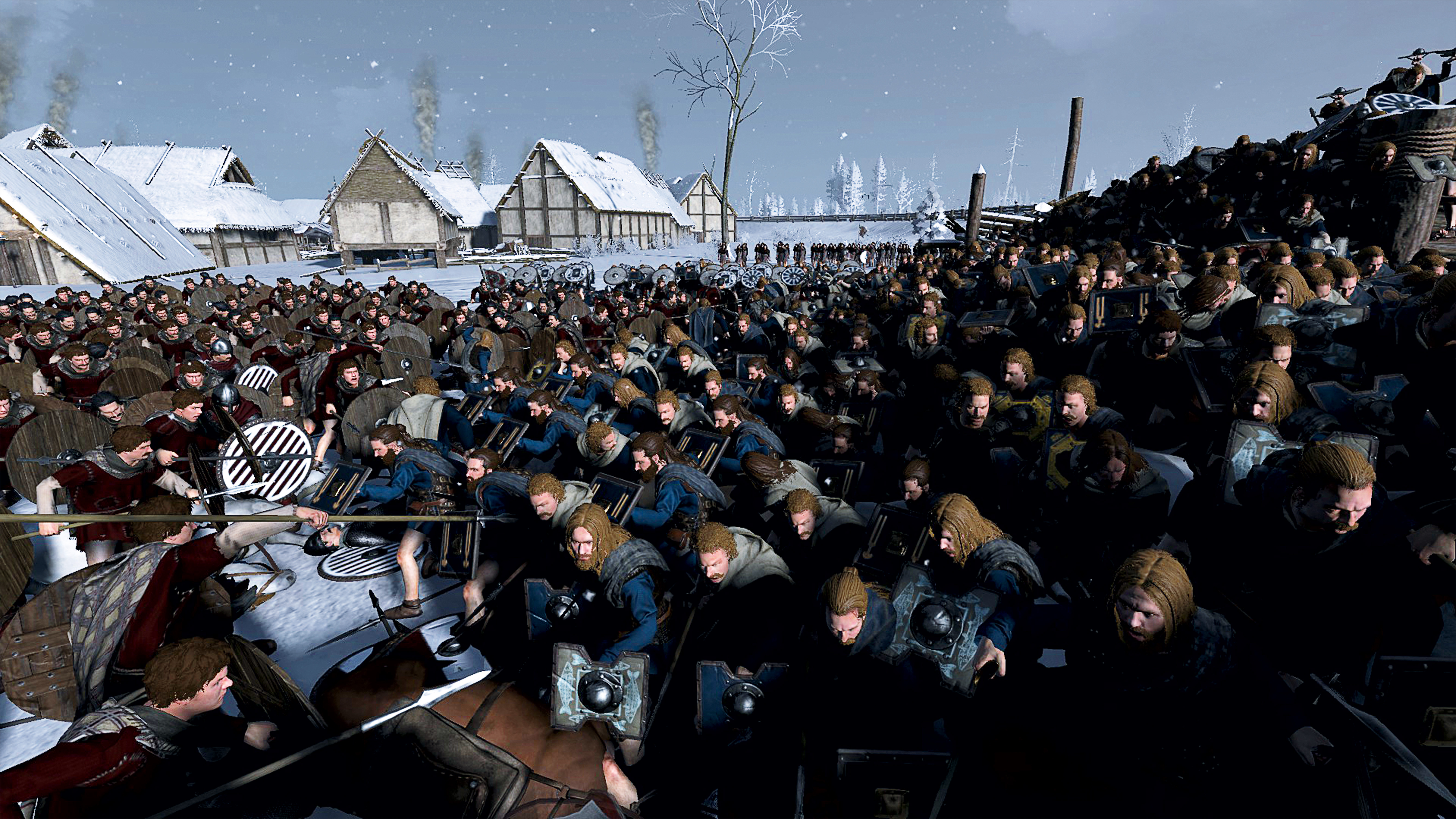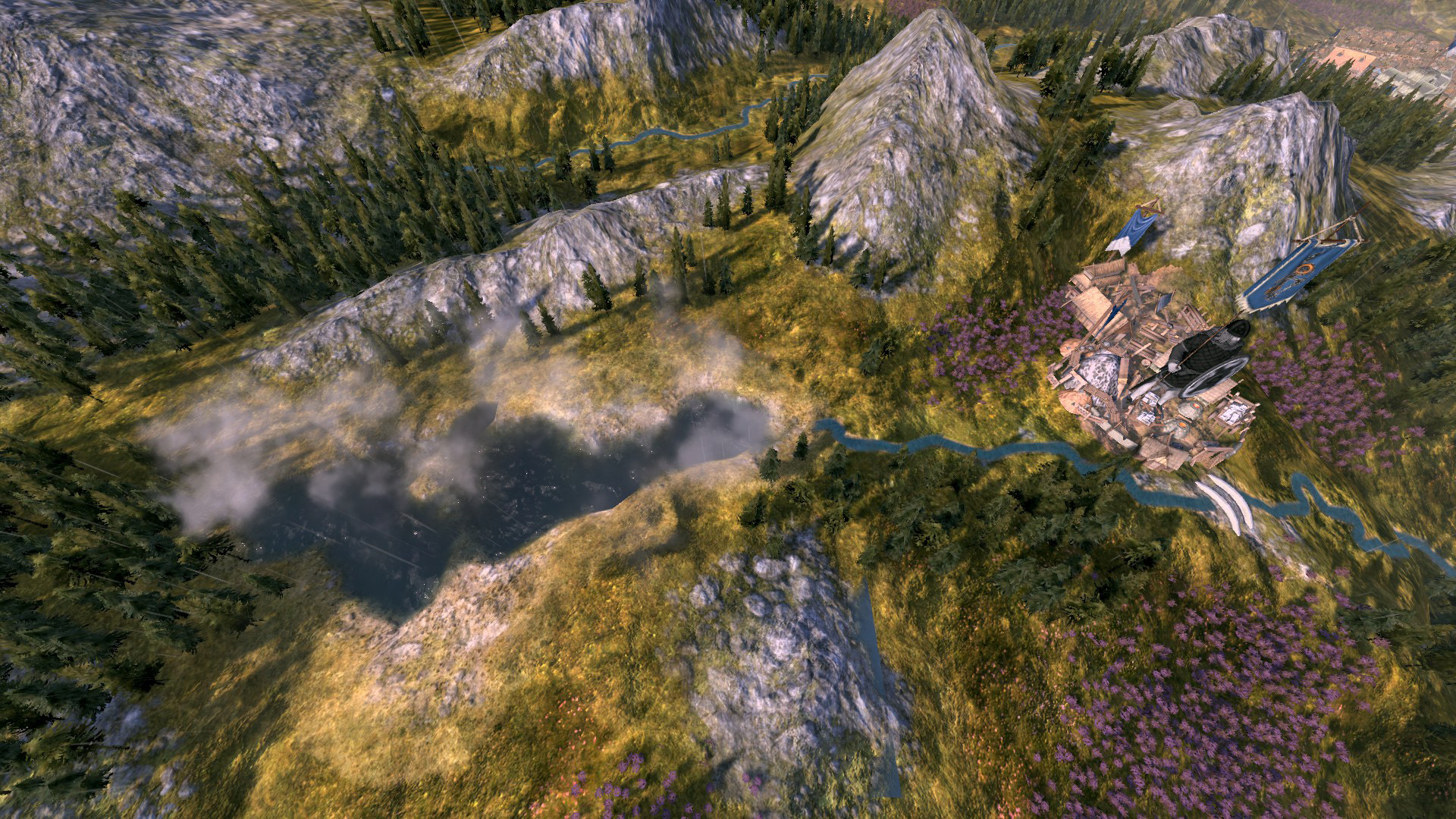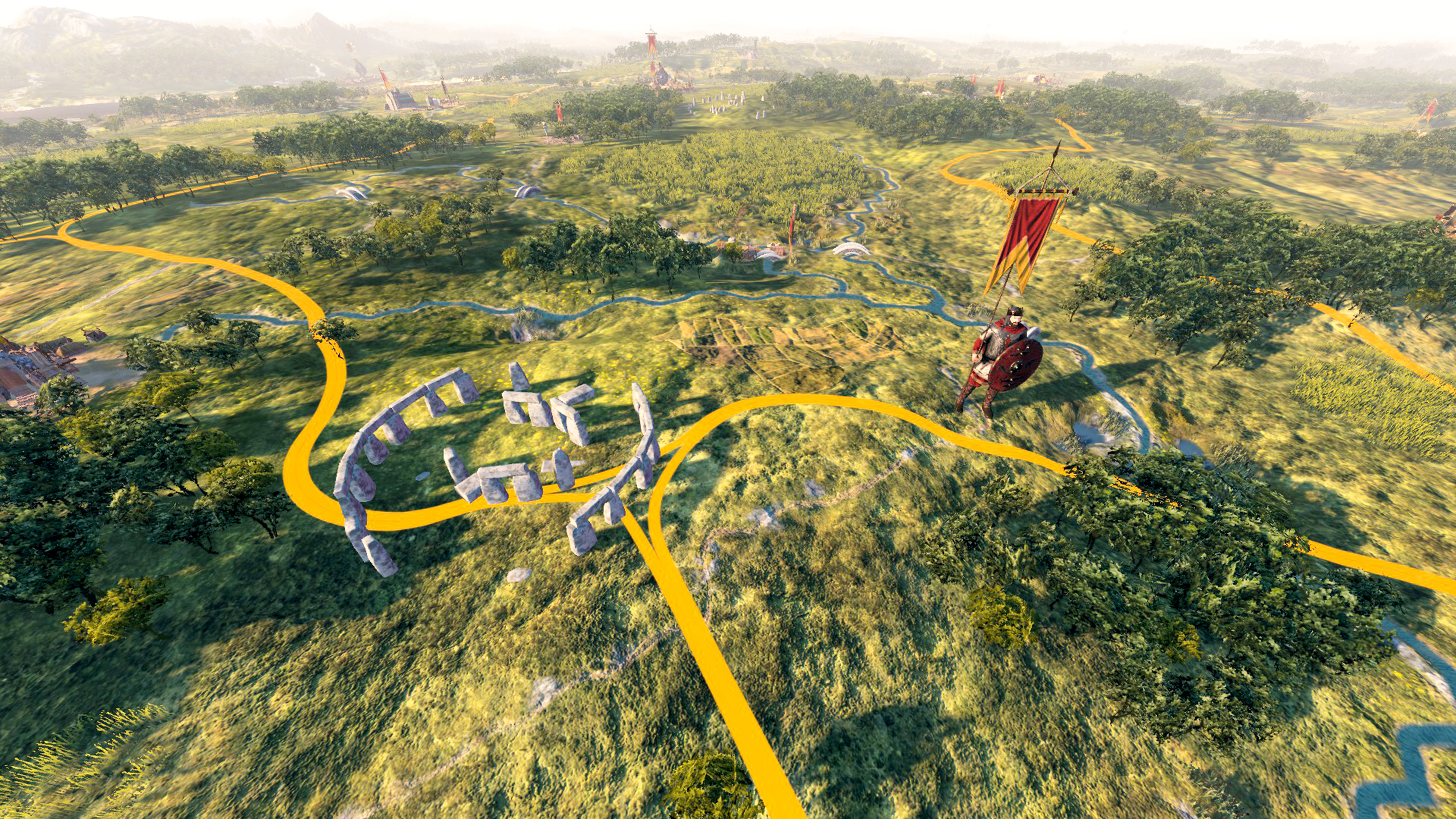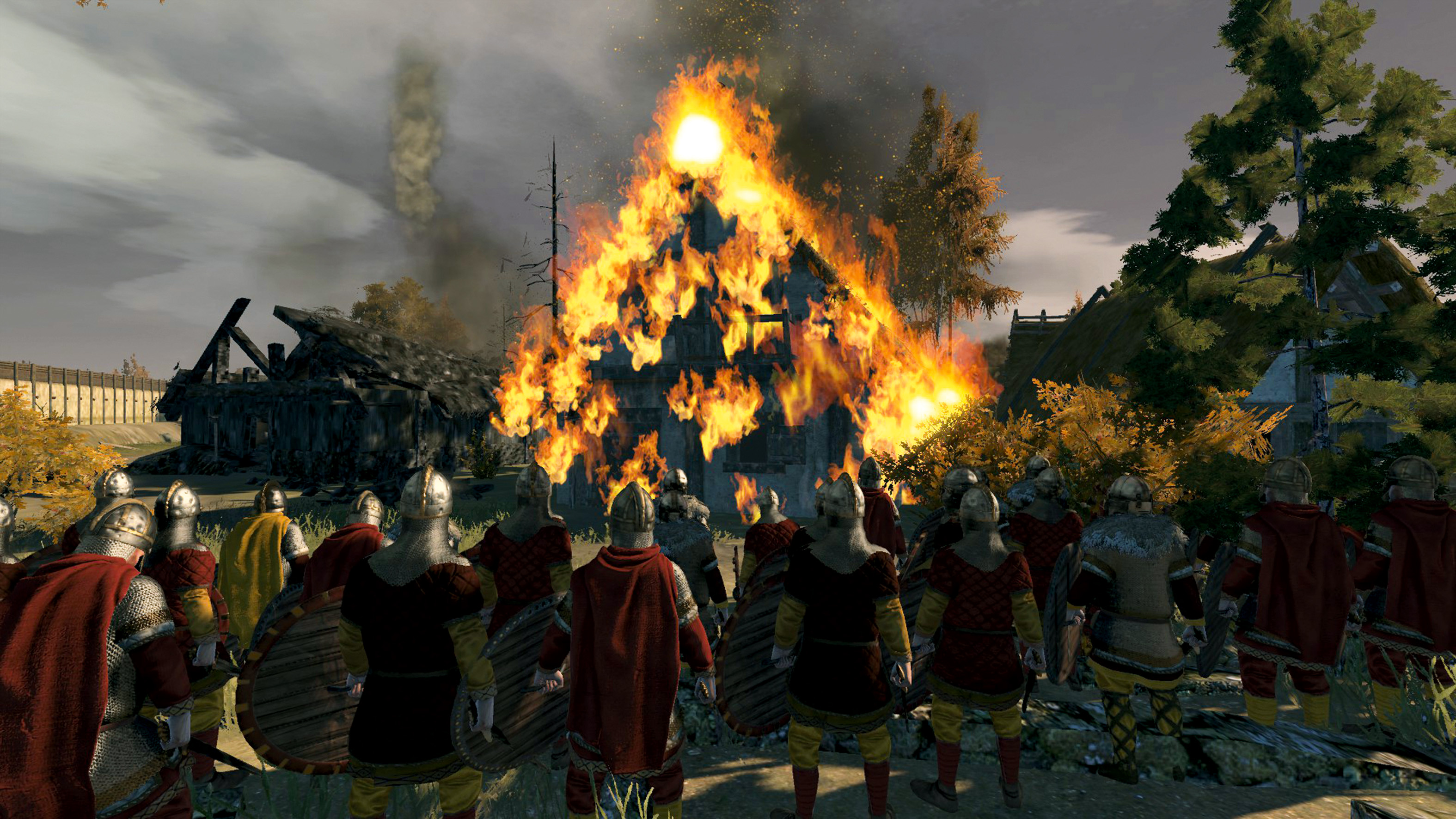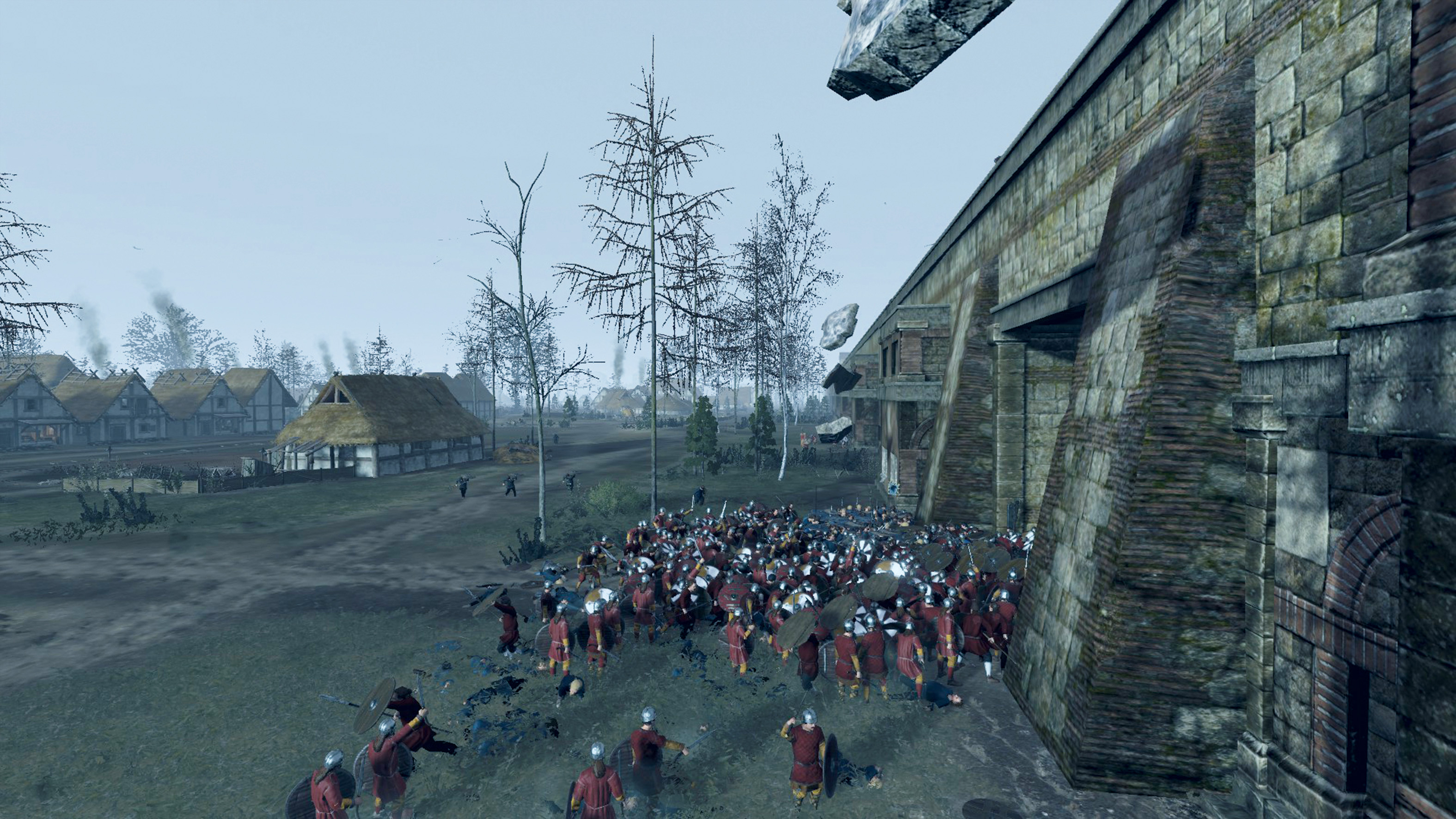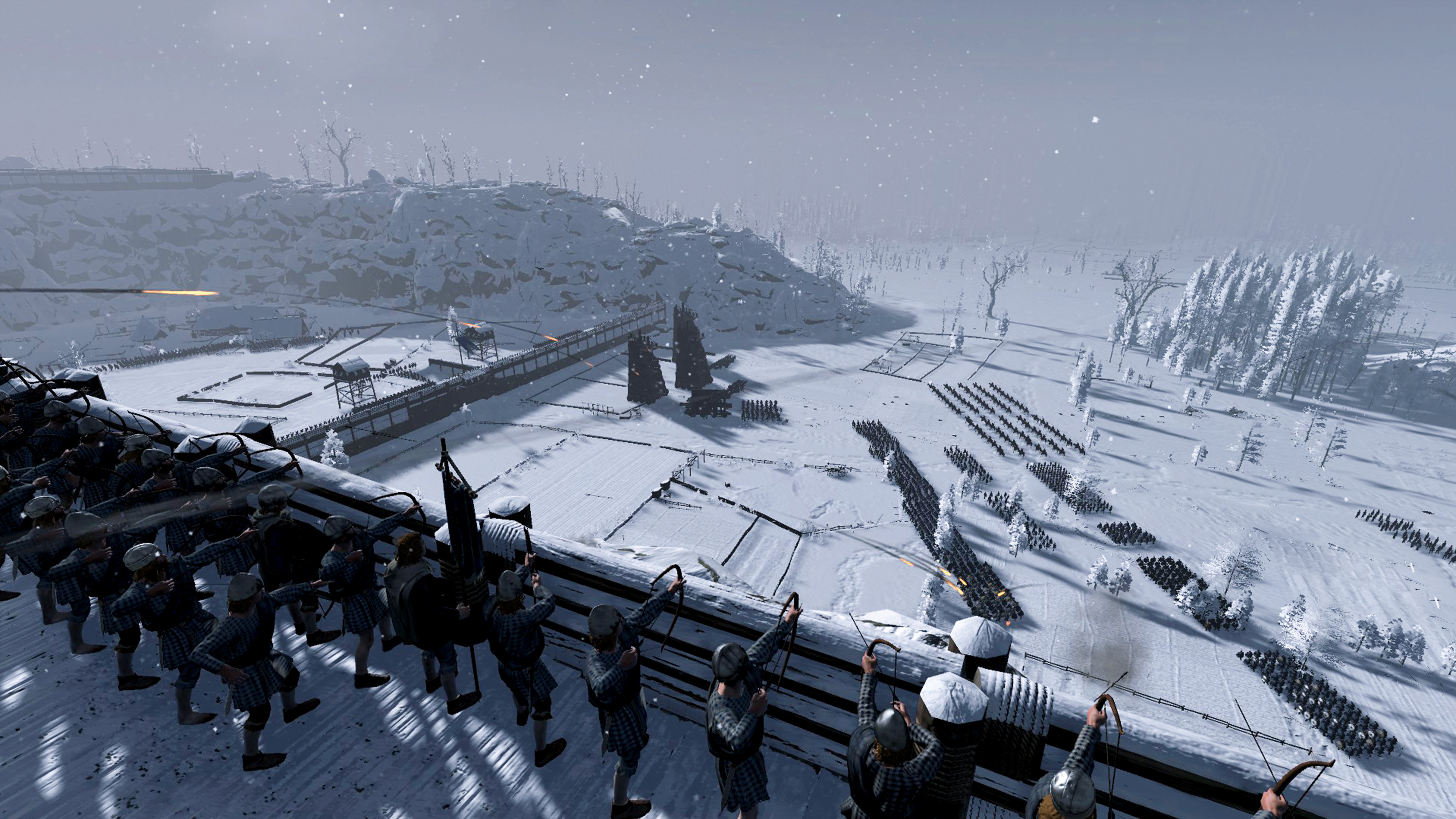Our Verdict
A brilliant early game and bold experiments almost make up for the AI niggles and the boring march to the final battle.
PC Gamer's got your back
What is it? A compact Total War full of Viking raids and warring kings.
Expect to pay £30/$40
Developer Creative Assembly
Publisher Sega
Reviewed on Core i5-3570K, 16GB of RAM, GTX 970, Windows 10
Multiplayer Yes
Link Official site
Total War Saga games, of which this is the first, are smaller standalone games that hone in on a flashpoint in history. This time it's the age of Alfred the Great, King of the Anglo-Saxons and historical celebrity. It's fertile ground for a Total War romp, with the British Isles heaving with people who really don't like one another, especially the kings. And there are a lot of them. How many kings could you really fit in Britain, you're perhaps wondering. The answer is loads. Too many, really. Hence all the wars.
The assassination attempt on my king, Áed of Circenn, splintered the alliance of Scottish kingdoms that had previously been united against the Vikings. All of Scotland then erupted in war. It actually worked out, giving me—the terrible pragmatist that I am—an excuse to swallow up all of my one-time allies and consolidate my power. With everyone at one another's throats, I was able to pick them off one at a time, Vikings included.
Each of the ten playable factions is part of a cultural group that comes with certain allegiances and grudges. The Vikings might not always get along, but when the Gaels rise up against them, you'd better believe they team up, or at least get pressed into service by the most powerful king. How long that lasts depends on how long the king can keep his vassals and nobles happy, or how quickly he can kill troublemakers.
With everyone being at a similar technological level and fielding visually indistinguishable bearded warriors, they're not as obviously different as the Romans and Germanic tribes (or the Empire and the Orcs), but each has a mechanical hook that helps make them stand out in a lineup. Viking Dyflin dabbles in the nauseating slave trade, West Seaxe hosts Witans that determine the kingdom's future, while Circenn has a legitimacy system that encourages leaders to placate the north by going out and doing great deeds, usually at the end of a spear.
King's quest
Unique events and story missions offer up more flavour while having a knock-on effect, drawing in other kingdoms. Circenn kings can hunt for the Stone of Destiny, for example—a coronation bauble that Scotland and England have argued over for centuries. The hunt is a quest that, much like Warhammer's, sends armies all across the map in search of glory and treasure (and, of course, lots of battles). The quest forces Circenn to occupy several settlements, however, kickstarting little wars all over the islands.
These events also appear for AI kingdoms, creating a lively map where major crises play out whether you're involved or not, though you'll usually hear about it either way. While you're getting in fights with the Welsh, the Viking kingdoms to the west might be joining forces to pay the Gaels back for attacking one of their settlements, while everyone up in Northumbria is kicking up a fuss over their murdered monarch.
On the default difficulty the enemy AI is a bit overzealous
As the undisputed ruler of Scotland, I was getting ready to enjoy the fruits of my labour. Some of my subjects didn't appreciate being conquered, however, and a small band of rebels managed to cause a ruckus and take over a town. In the battle to reclaim it, the king died carving a path to the heart of the settlement. The rebellion was crushed, but only a few turns later the whole kingdom imploded as nobles rose up against his heir.
Keep up to date with the most important stories and the best deals, as picked by the PC Gamer team.
Holding onto my kingdom proved to be a lot trickier than building it. Thrones of Britannia's kingdoms and borders are fluid, with wars, uprisings and politicking forcing the archipelago to constantly shift. Old kingdoms once thought long gone can reappear, while powerful nations can be shattered in a few years. In the early game, when there are still five kings for every person, the cavalcade of events and battles means that it's never not interesting, in stark contrast to the victory conditions that become the focus later.
To the victor
There are seven victory conditions in Thrones of Britannia. Long and short conquest victories return, tasking players with gobbling up a specific number of provinces, but they're joined by two types of fame and kingdom victories, as well as an ultimate victory that can only be achieved once you've completed another long victory and defeated an invading fleet that's determined by your faction. The new additions aren't great.
Fame victories are especially hollow. All you need to do is generate fame by simply playing the game, and not even well. Fight, build stuff and just generally engage with Total War and you'll end up winning. Kingdom victories, on the other hand, are basically the same as conquest victories, but instead of conquering everyone, you've also got to conquer some specific provinces, their number depending on the faction.
As the Anglo-Saxons, I achieved two victories by turn 30. In turn 20, the King of Miede died and I inherited the entire kingdom, instantly giving me a kingdom victory. I'd done nothing. Ten turns later, I also got a fame victory, though I'd not been aiming for it. It means that if you're playing as a large, established kingdom already, you're only a few turns from technically winning, absent any satisfaction. The solution, you might think, would be aiming for the ultimate victory.
With two victories behind me, I found myself in a rut. I had countless vassals, more money and food than I could waste, and nobody who could stand up to me. There were still uprisings, but they were just small things compared to the wars I'd already fought. I started manufacturing problems. I adopted an ambitious noble, who started causing trouble because he thought he also deserved to be the heir to the throne. I was making purposefully terrible decisions just to occupy myself. This wasn't the case with every faction, though. I spent well over 200 turns leading Circenn before I ran out of engaging things to do. Even that's a problem. There was no impetus to conquer the rest of Britain.
The events and unique missions that should have been spurring me on and firing me up to go on another war-bender dried up, leaving me waiting for the ultimate victory and the promise of one last, titanic clash. My enthusiasm had petered out by the time the ships arrived.
It's disappointing to end a game on such a sour note, especially when Thrones of Britannia brings with it a lot of positive changes that I hope will be continued through future Total War games, and not just the Saga series. For all of its tweaks, it often drills down into what's great about Total War as a series. For a long time Total War has been stuffed to the gills with systems that can sometimes get in the way of a good scrap. Leader progression, building chains and agents have consistently become more elaborate and diverting. Thrones of Britannia is comparatively neater. Creative Assembly has liberally sheared off agents, trade and military buildings, weaving the mechanics once attached to them into other systems. It's both slicker and more cohesive than any of its predecessors, though the streamlining does make some parts of the game feel perfunctory.
Most of Thrones of Britannia's intermingling and streamlining of systems feels like progress, though. Pour one out for agents, because they're completely gone. Only in Warhammer has it felt like agents—or heroes—offered enough to make it worth putting up with what terrible pests they are. But even though they've been cut, agent abilities are now replicated by leaders.
Eschewing both Rome II and Warhammer's skill trees, leaders now develop exclusively through traits and followers. Traits once again appear over time, based on how a leader acts (or doesn't act), as well as their environment. Keep a leader inside a settlement with a library, and they'll become more scholarly. If they win a decisive victory, they'll be able to command more respect and throw their weight around more.
Followers, on the other hand, are dramatically different. Instead of being random hangers-on that leaders collect, they are manually unlocked when a leader levels up. If you want them to be more loyal and less likely to start a civil war, for instance, then you should give them a priest. Much like an agent in previous Total War games, the priest will also decrease public order in enemy territory. This removal of superfluous units from the campaign map makes sense for a faster-paced Total War such as Thrones of Britannia, although I'm not convinced that this alternative to agents is quite a one-size-fits-all deal.
While agents are out, there are still plenty of other units just itching to be recruited, a process that has changed considerably. Waiting for an army to finish recruiting is not a particularly fun way to spend a few turns, so Thrones of Britannia gives you one instantly. If you've got the cash and food to support 20 units, then you can get all of them straight away. They won't, however, have a full complement of troops. It's the skeleton of an army, filling up over time as new troops arrive. Instead of being stuck in a settlement, it can move around, get in fights and even go off and do a spot of conquering.
So much busywork is cut out. There's no more constructing the same archery ranges and barracks over and over again, or trudging armies halfway across the map to reinforce a village where, for some reason, nobody can learn how to hold a bow without this one very specific building. There's definitely an argument that some of the need to plan out a long-term strategy is reduced when you can summon an army almost anywhere in your territory, but there's still a significant cost, both upfront and in the maintenance of the army. And since it takes a few turns for them to muster enough men to get to full strength, they won't be tough enough to handle an an enemy force that's actually prepared.
Even if you've got fat coffers and a population that's hungry for a fight—people can get tired of constant warring, eventually, reducing public order—you're not going to be able to keep all of your settlements safe. Thrones of Britannia's map is incredibly dense, with potential targets rarely more than a couple of turns away from each other. Armies can rapidly swallow up territory, especially since most settlements are undefended villages that support the main fortified towns. These places make for particularly tempting morsels for raiders, as the lack of a garrison makes them easy to sack. It's thematically rather appropriate for a game rich in musky Vikings, but more than that, it creates new ways to put pressure on an enemy, denying them much-needed resources. If they're occupied, they can also become potential staging posts where armies can gain a foothold and seek shelter during winter.
Reinventing history
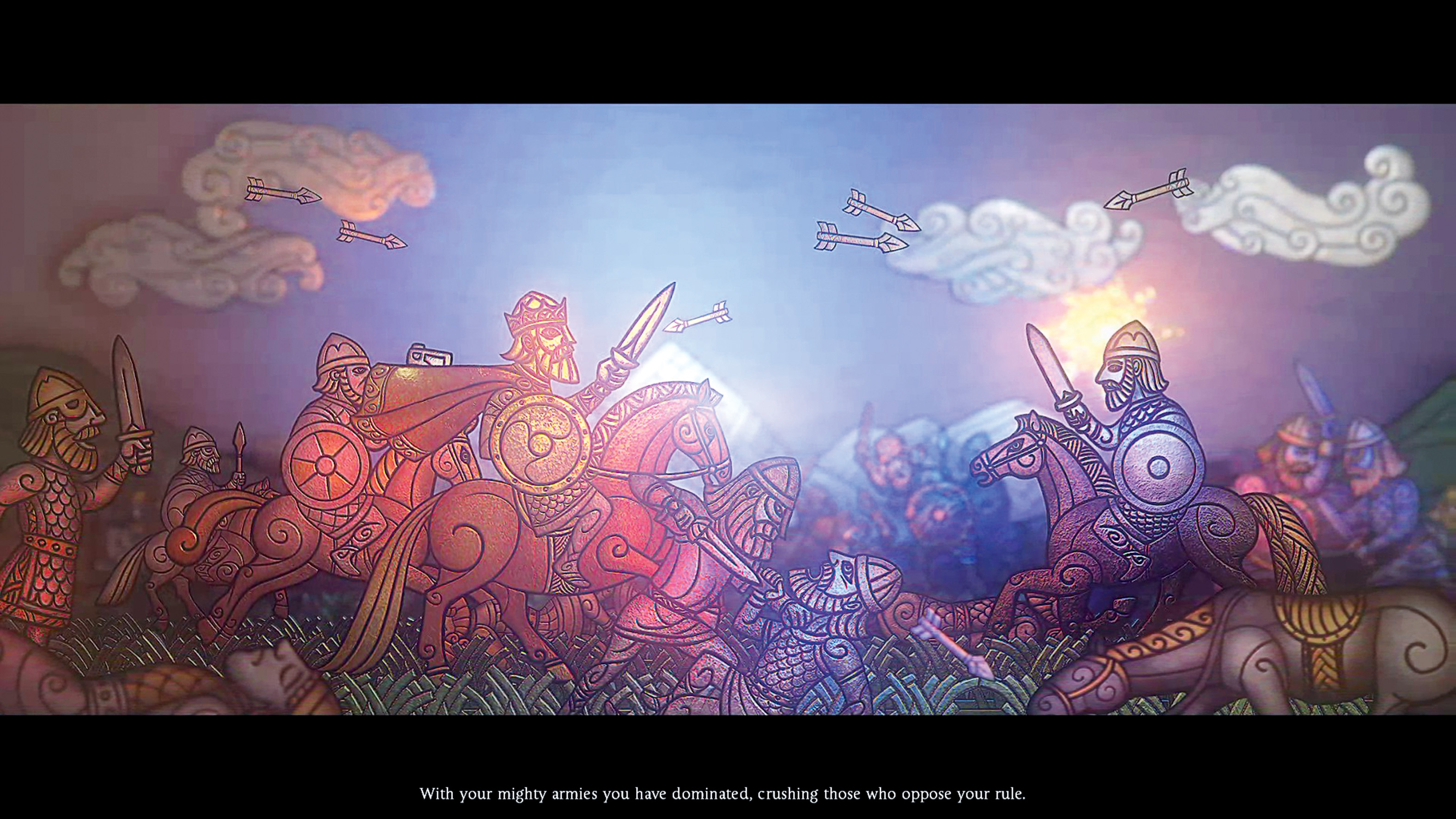
Thrones of Britannia's smaller frame—and rapidly shrinking roster of factions—means that turn times aren't a nightmare. They'll certainly be a welcome change if you've been dabbling in Warhammer’s Mortal Empires campaign. The swift turns are accompanied by solid performance across the board, on the campaign map and in battles, generally straining my rig less than its fantasy predecessor. Wee hairy troops apparently require less horsepower than great big scorpion monsters and massive killer statues.
Thrones of Britannia doesn't quite go back to the drawing board when it comes to the real-time brawls, but it does reconsider several things, along with bringing back welcome features like guard mode and formations. Shields get a lot of time in the spotlight this time around, and they can be used to completely halt cavalry charges and more effectively protect against assaults of pesky, eye-gouging arrows.
Once the initial cavalry charges have been repelled, however, the battles largely play out the same way they did in Attila. Critical hits mean that a lucky shot can kill an enemy outright, while warriors will now stand closer together so they can huddle behind the shield wall. But these, much like several other tweaks to combat, don't noticeably change the tempo or tactics.
The subtler differences between Attila and Thrones of Britannia may become more apparent in multiplayer, but there's less of an impetus to get into the nitty gritty when playing against the AI. On the default difficulty the computer is a bit overzealous, committing almost everything to a big push, only occasionally hiding units in forests or embarking on sneakier strategies. On the campaign map, the AI is quick to take advantage of the weak points in your kingdom's defences and retreat when it's bitten off more than it can chew, but it struggles more when it's on the defensive.
In several battles during my first game, the AI got rather confused and let me walk to victory. In one case, the entire enemy force got so spooked by the cavalry that appeared behind them that they started pacing on the spot until they decided to charge at my army, one unit at a time, until they routed. In another, an indecisive fleet couldn't pick between two landing areas and, instead, sailed between them for the entire battle, allowing me to conquer a city nearly unopposed. Several of these AI cock-ups happened in quick succession, but haven't appeared since, after several days of playing.
Thrones of Britannia is the most unusual historical Total War instalment since 2010's Napoleon. Though it's still a historical Total War right down to its core, it feels like every feature must have been on the chopping block at one time or another. It's bold and surprising, but it's also a game that's often at odds with itself. It attempts to condense the Total War experience, throwing everyone into conflict and cranking up the pace, but it does little to stop the significant lulls that can happen in the mid and late game. Indeed, while the events and busy map initially make this one of the most engaging games in the series, it can suddenly devolve into one of the dullest once some of the pieces have been knocked off the board.
A brilliant early game and bold experiments almost make up for the AI niggles and the boring march to the final battle.

Fraser is the UK online editor and has actually met The Internet in person. With over a decade of experience, he's been around the block a few times, serving as a freelancer, news editor and prolific reviewer. Strategy games have been a 30-year-long obsession, from tiny RTSs to sprawling political sims, and he never turns down the chance to rave about Total War or Crusader Kings. He's also been known to set up shop in the latest MMO and likes to wind down with an endlessly deep, systemic RPG. These days, when he's not editing, he can usually be found writing features that are 1,000 words too long or talking about his dog.
